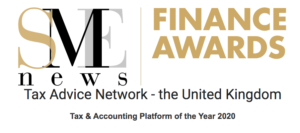“Give me pure tax evasion any day”
This sentiment was expressed by one of our tax investigation specialist members on the Tax Advice Network’s private forum for members. What prompted such an intriguing comment?
The discussion related to aggressive tax avoidance schemes. I’m no fan and have long sought to highlight that the real risks of such schemes are generally greater than the promoters would have you believe. This is especially the case if you are dealing with promoters who are one or more steps removed from the tax brains that originated the scheme.
The tax adviser members of the Network were sharing their views as to the complexity of such schemes. This was in response to my suggestion that we consider adding the following as additional headings on our list of ‘specialisations’:
Avoidance schemes and strategies – resolving challenges
Sadly there are plenty of taxpayers and accountants who have been taken in by the hard sell and ‘assurances’ offered by promoters of tax avoidance schemes. It’s a fact of life that the problems only become apparent some years after the initial transactions took place. Our advisers are experienced in negotiating with HMRC and helping clients to extricate themselves from complex structures that have little commercial value.
Explanations and advice
Unlike the aggressive purveyors of tax avoidance schemes who focus on promoting and selling their ‘products’ our advisers prefer to focus on bespoke tax planning. Some of our specialists are well aware of the ‘solutions’ being promoted to reduce income taxes, capital gains tax, corporation tax, SDLT, NICs VAT and IHT. Whilst the tax reduction is often attractive, many clients decide not to proceed once they understand the risks (and there are always risks). Others may still be willing to proceed but only when fully aware of the risks and downsides they may face.
Call or email one of our specialist advisers if you want help in resisting a hard sell or a more down to earth explanation of a specific strategy, the risks and probable outcome.
Despite the potential interest in such generic services, we concluded that we could not offer to provide them in the way I had initially suggested. To do so would require specific members to have in depth knowledge across a wide range of specialist area of tax and the related avoidance schemes.
In practice most advisers only have such expertise in their own specialist area or areas. So, for example, one member noted that he would be willing to assist anyone who is involved with an employee loan scheme. However he would be reluctant to offer advice on non-employment related schemes as to do so would require a great deal of uneconomic research.
Another member of the Tax Advice Network noted that he has been instructed on a number of occasions after HMRC had successfully challenged schemes. He noted that it often only takes a little research to find:
“the little bit of writing – in the mass of over information – that covered the seller’s back and usually points to the naive customer not reading the blurb with enough detail to spot that they were likely to end up paying through the nose for very little.”
And another member noted that one of his past roles in a national firm of accountants was to unpick these avoidance schemes, with the result that very very few were sanctioned by the firm.
It became clear from our online discussion that there was no appetite for providing the two generic services I summarised above. Indeed, such is the lack of enthusiasm for such schemes among these experienced specialist tax advisers that one (a tax investigations specialist) was moved to conclude: “Give me pure tax evasion any day”.

